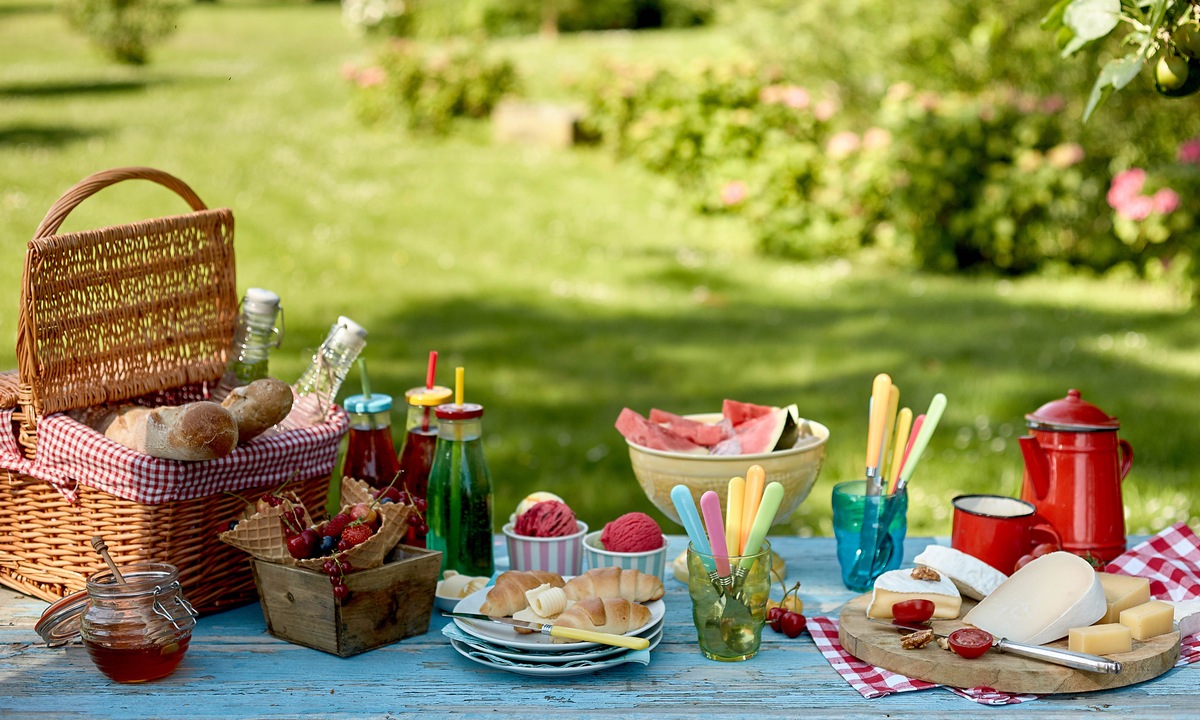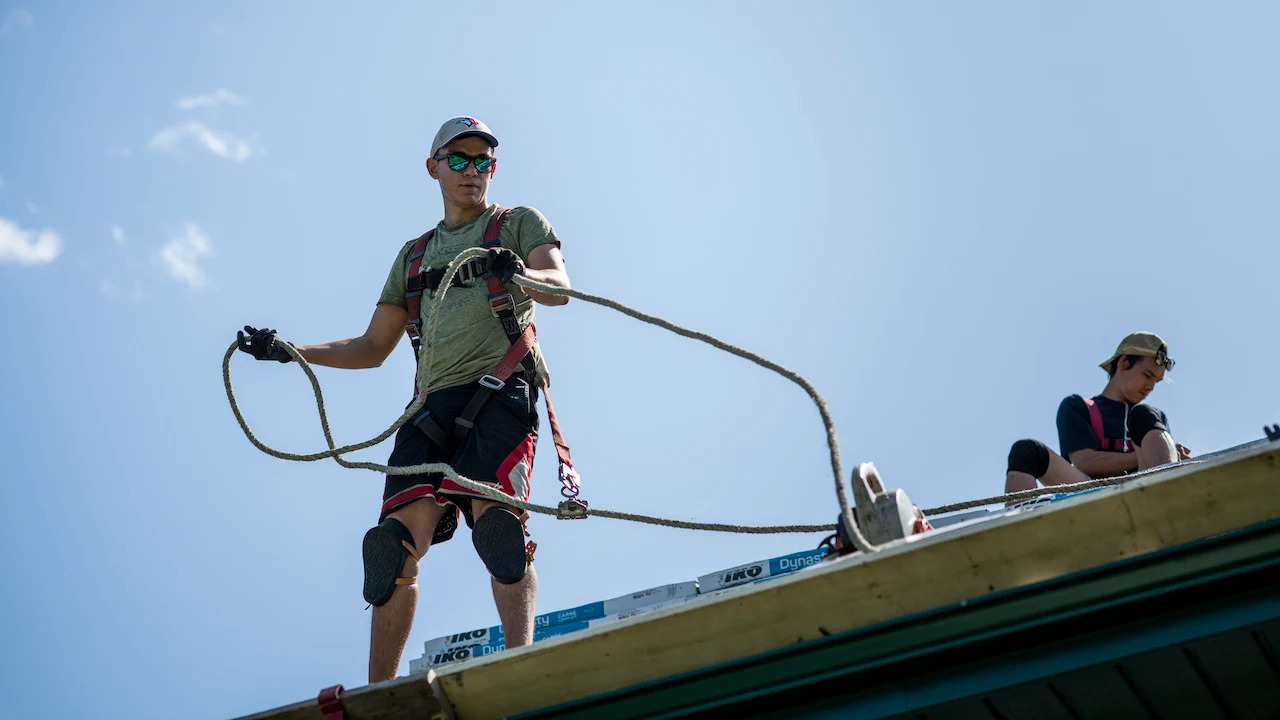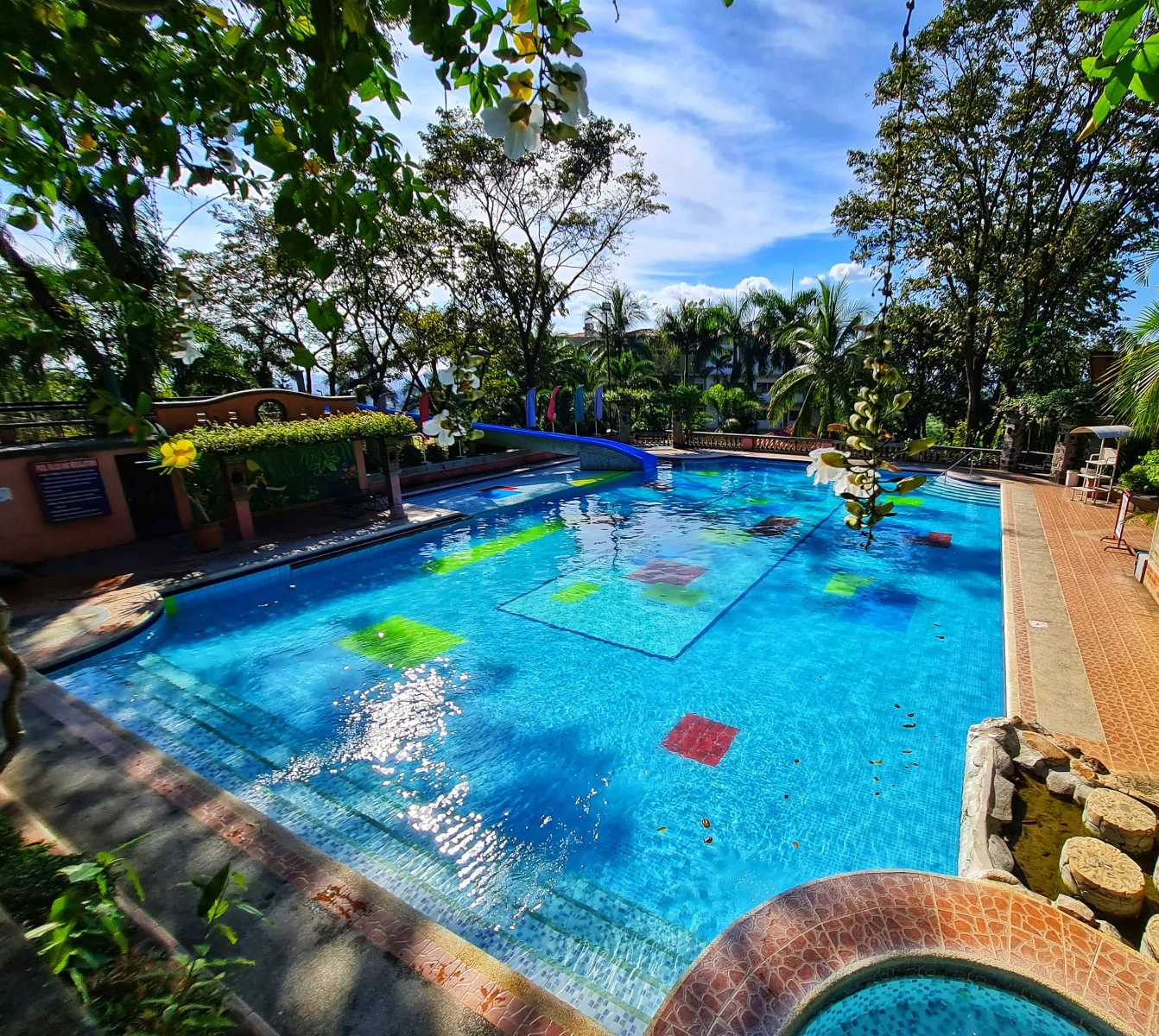Home>Gardening & Outdoor>Outdoor Entertaining>How To Start A Picnic Business


Outdoor Entertaining
How To Start A Picnic Business
Modified: January 23, 2024
Learn how to start and grow a successful outdoor entertaining business with our comprehensive guide. Find tips, strategies, and resources for launching your picnic business.
(Many of the links in this article redirect to a specific reviewed product. Your purchase of these products through affiliate links helps to generate commission for Storables.com, at no extra cost. Learn more)
Introduction
Are you passionate about creating unforgettable outdoor experiences for others? Do you possess a flair for hospitality and a keen eye for detail? If so, starting a picnic business might be the perfect venture for you. Imagine curating idyllic settings, preparing delectable spreads, and orchestrating memorable moments for your clients. Whether it's a romantic date, a family gathering, or a corporate event, a well-executed picnic can leave a lasting impression.
In today's fast-paced world, many individuals and organizations seek opportunities to disconnect from the hustle and bustle, reconnect with nature, and savor the simple joys of life. As the owner of a picnic business, you have the chance to facilitate these meaningful connections and provide a service that fulfills a growing demand for outdoor leisure and personalized experiences.
This guide is designed to walk you through the essential steps of launching and running a successful picnic business. From conducting thorough research and crafting a comprehensive business plan to navigating legal requirements, securing financing, and devising effective marketing strategies, each aspect is crucial to your venture's prosperity. Additionally, we will delve into the operational and customer service elements that will set your picnic business apart, ensuring that every client leaves with cherished memories and a desire to return.
Embarking on this entrepreneurial journey requires dedication, creativity, and a genuine passion for hospitality. As you immerse yourself in the process of establishing your picnic business, remember that attention to detail and a personalized touch can transform a simple outdoor gathering into an extraordinary experience. So, let's dive in and explore the intricacies of launching and managing a thriving picnic business that brings joy and relaxation to all who partake.
Key Takeaways:
- Starting a picnic business requires thorough research, meticulous planning, and a passion for creating enchanting outdoor experiences. From crafting a unique business plan to designing captivating picnic settings, attention to detail is key.
- Providing exceptional customer service, embracing creativity in designing picnic experiences, and strategic marketing are essential for success. The art of curating memorable outdoor gatherings lies in personalized touches and a commitment to excellence.
Read more: How To Start A Furniture Business
Research and Planning
Before delving into the practicalities of launching a picnic business, thorough research and meticulous planning are essential. Begin by immersing yourself in the world of outdoor entertainment and hospitality. Understand the current trends, customer preferences, and the competitive landscape. Consider the types of picnics that are popular in your target market, whether it’s romantic picnics for couples, family-friendly gatherings, or corporate events.
Conduct market research to identify the demand for picnic experiences in your area. Explore the demographics of potential customers, their disposable income, and their preferences for outdoor activities. This knowledge will guide your business decisions, from the design of your picnic packages to your marketing strategies.
Simultaneously, study your competitors. Analyze existing picnic businesses, event planners, and outdoor catering services in your area. What are their strengths and weaknesses? How can you differentiate your picnic business and carve out a unique niche in the market? By understanding the competitive landscape, you can identify opportunities for innovation and develop a compelling value proposition that sets your business apart.
As you gather insights from your research, begin outlining your business plan. Define your target market and the specific picnic experiences you aim to offer. Consider factors such as location, themes, catering options, and additional services like entertainment or photography. Your business plan should also encompass financial projections, marketing strategies, and operational logistics.
Furthermore, establish partnerships with local vendors, such as food suppliers, rental companies, and outdoor venues. Building a network of reliable and high-quality partners is integral to delivering exceptional picnic experiences. Additionally, consider the logistical aspects of your business, including transportation, storage, and waste management, to ensure seamless operations.
By investing time and effort into thorough research and meticulous planning, you lay a solid foundation for your picnic business. This groundwork will inform your decision-making, inspire innovative ideas, and ultimately contribute to the success of your venture.
Creating a Business Plan
A meticulously crafted business plan is the compass that guides your picnic business toward success. It serves as a roadmap, outlining your vision, strategies, and operational details. When creating your business plan, consider the following key components:
- Executive Summary: This section provides an overview of your picnic business, including its mission, vision, and the unique value it offers to customers. It encapsulates the essence of your venture and sets the tone for the rest of the plan.
- Market Analysis: Conduct a comprehensive analysis of the outdoor entertainment and hospitality market in your area. Identify your target demographic, understand their preferences, and assess the demand for picnic experiences. Additionally, analyze the competitive landscape and pinpoint opportunities for differentiation and growth.
- Business Description: Define the nature of your picnic business, the types of experiences you plan to offer, and the distinctive elements that set your services apart. Outline your business’s organizational structure and provide insight into your short-term and long-term goals.
- Marketing and Sales Strategies: Detail your plans for promoting your picnic business, acquiring customers, and retaining their loyalty. Consider digital marketing, partnerships with event planners or local businesses, and other innovative approaches to reach your target audience.
- Operational Plan: Describe the logistical and operational aspects of your picnic business. This includes sourcing suppliers, managing inventory, coordinating transportation, and ensuring seamless execution of picnic experiences.
- Financial Projections: Present realistic and well-researched financial forecasts, including revenue projections, expense estimates, and break-even analysis. This section demonstrates your understanding of the financial aspects of your business and instills confidence in potential investors or lenders.
- Risk Analysis: Acknowledge potential challenges and risks that your picnic business may face, and outline strategies to mitigate these risks. Whether it’s weather-related uncertainties, fluctuating food costs, or seasonal demand variations, a thorough risk analysis demonstrates your preparedness and adaptability.
- Appendix: Include any supplementary information, such as market research data, vendor agreements, permits, and licenses. This section provides additional context and credibility to your business plan.
Remember that your business plan is not only a tool for internal guidance but also a document that can attract potential investors, partners, and lenders. A well-crafted plan showcases your professionalism, strategic thinking, and commitment to building a successful picnic business.
Legal and Regulatory Considerations
When establishing a picnic business, navigating the legal and regulatory landscape is paramount to ensuring compliance and mitigating potential risks. Here are essential considerations to address:
- Business Structure: Determine the most suitable legal structure for your picnic business, whether it’s a sole proprietorship, partnership, limited liability company (LLC), or corporation. Each structure has distinct implications for taxation, liability, and operational flexibility.
- Permits and Licenses: Research and obtain the necessary permits and licenses for operating an outdoor catering and events business in your locality. This may include health permits for food handling, permits for the use of public spaces, and business licenses from local authorities.
- Food Safety Compliance: Adhere to food safety regulations and standards to ensure the quality and safety of the meals and refreshments provided during your picnics. This involves proper food handling, storage, and sanitation practices in accordance with local health regulations.
- Insurance: Protect your picnic business and its assets by securing appropriate insurance coverage. Consider general liability insurance, product liability insurance for food offerings, and business property insurance to safeguard against unforeseen events and liabilities.
- Contracts and Agreements: Develop comprehensive contracts and agreements for your clients, vendors, and partners. Clearly outline the terms of service, payment terms, cancellation policies, and any liabilities or responsibilities to establish transparent and professional relationships.
- Employment Regulations: If your picnic business involves hiring staff or collaborating with independent contractors, familiarize yourself with employment laws, tax obligations, and worker’s compensation requirements. Ensure that your employment practices align with legal standards.
Engaging with legal professionals, such as attorneys specializing in business law and regulatory compliance, can provide invaluable guidance as you navigate these considerations. Additionally, staying informed about any updates or changes in local regulations ensures that your picnic business remains in good standing and operates ethically and responsibly within the legal framework.
Financing Your Picnic Business
Securing adequate financing is a crucial step in turning your vision of a successful picnic business into a reality. Whether you are starting small with a mobile picnic service or envisioning a grand outdoor venue, exploring various financing options can provide the necessary capital to launch and grow your venture. Here are avenues to consider:
- Personal Investment: Consider utilizing personal savings or assets to fund the initial stages of your picnic business. This demonstrates your commitment and belief in the venture, which can instill confidence in potential investors or lenders.
- Small Business Loans: Research small business loans offered by financial institutions, including banks and credit unions. These loans can provide the capital needed to cover startup costs, equipment purchases, and initial operating expenses.
- Grants and Competitions: Explore opportunities for grants and business competitions that support entrepreneurial ventures in the hospitality and outdoor recreation sectors. These sources of funding often come with valuable networking and mentorship opportunities.
- Investment Partnerships: Seek potential investors who are aligned with your vision for the picnic business. Whether they are individual investors, angel investors, or venture capital firms, securing investment partnerships can infuse your business with the necessary funds for growth and expansion.
- Crowdfunding: Consider launching a crowdfunding campaign to raise capital for your picnic business. Platforms dedicated to crowdfunding for business ventures can help you reach a wider audience of potential supporters and backers.
- Revenue Generation: Develop creative ways to generate revenue even before officially launching your picnic business. This may involve offering pre-sale packages, hosting pop-up picnic events, or partnering with local organizations for collaborative experiences.
When seeking financing, it’s essential to present a compelling business plan, complete with financial projections, market analysis, and a clear strategy for growth. Demonstrating a thorough understanding of the picnic business landscape and its potential for success can bolster your credibility with potential lenders and investors.
Remember that the right financing approach for your picnic business will depend on your specific needs, growth ambitions, and long-term vision. By exploring diverse avenues for funding, you can secure the resources needed to launch and elevate your picnic business to new heights of success.
Read more: How To Start A Construction Business
Finding the Right Location
The choice of location plays a pivotal role in shaping the ambiance and appeal of your picnic business. Whether you envision serene outdoor settings, urban park experiences, or exclusive private venues, finding the right locations for your picnics is essential to creating memorable and captivating experiences for your clients. Consider the following factors when selecting and securing picnic venues:
- Scenic Beauty and Accessibility: Seek out locations with picturesque natural surroundings, such as parks, gardens, waterfronts, or countryside landscapes. Accessibility is also key, ensuring that your chosen venues are convenient for your target clientele to reach.
- Permitting and Regulations: Research the permitting requirements for hosting picnics in public spaces or private venues. Ensure that you comply with any regulations related to group gatherings, food service, and event activities at your chosen locations.
- Facilities and Amenities: Evaluate the availability of amenities such as picnic shelters, restroom facilities, seating areas, and recreational features. These amenities can enhance the comfort and enjoyment of your clients during their picnic experiences.
- Weather Considerations: Take into account seasonal weather patterns and any necessary accommodations for diverse weather conditions. Whether it’s providing shade during hot summer days or contingency plans for unexpected rain, preparing for weather-related factors is crucial.
- Exclusivity and Customization: Explore opportunities for exclusive access to unique venues or the potential to customize spaces for specific themes or events. Offering distinct and personalized settings can set your picnic business apart and create lasting impressions for your clients.
- Community Engagement: Build relationships with local communities and venue owners to establish partnerships for hosting picnics. Collaborating with venue managers, event spaces, and outdoor attractions can expand your range of available locations and enrich the diversity of your picnic offerings.
As you scout for the right locations, keep your target market and the intended picnic experiences in mind. Tailoring your venue selections to align with the preferences and desires of your clients can elevate the overall appeal and desirability of your picnic business.
By curating a portfolio of diverse and captivating locations, you can offer a range of unique picnic experiences that cater to various occasions and preferences, ensuring that each event is imbued with charm, comfort, and natural beauty.
Consider offering a variety of picnic packages to cater to different customer preferences, such as family-friendly, romantic, or customizable options. This will help attract a wider range of customers and increase your business potential.
Designing Your Picnic Experience
Creating a captivating and immersive picnic experience goes beyond setting up a blanket and serving a meal. It involves curating an atmosphere, crafting delightful culinary offerings, and infusing each gathering with a touch of magic. Whether it’s a romantic rendezvous, a family celebration, or a corporate retreat, the design of your picnic experience sets the stage for unforgettable moments. Consider the following elements when designing your picnic experiences:
- Thematic Concepts: Develop a repertoire of thematic concepts that cater to various occasions and preferences. From rustic country picnics to elegant garden soirées, offering diverse themes adds depth and personalization to your picnic experiences.
- Ambiance and Décor: Enhance the ambiance of your picnics with carefully curated décor elements. Consider floral arrangements, comfortable seating, ambient lighting, and thematic props that align with the chosen picnic theme.
- Culinary Offerings: Craft a menu of delectable and visually appealing culinary offerings that align with the theme and ambiance of each picnic. Whether it’s artisanal charcuterie boards, gourmet picnic baskets, or bespoke dessert spreads, the culinary aspect is central to the overall experience.
- Entertainment and Activities: Incorporate entertainment and engaging activities that complement the picnic setting. This could include live music, interactive games, nature walks, or curated experiences such as wine tastings or artisanal craft workshops.
- Personalization and Customization: Embrace the opportunity to personalize each picnic experience based on the preferences and special requests of your clients. Whether it’s accommodating dietary restrictions, arranging surprise elements, or incorporating meaningful details, personalized touches elevate the experience.
- Photography and Mementos: Offer the option of professional photography services or provide mementos such as custom picnic blankets, branded keepsakes, or personalized souvenirs. These offerings allow clients to capture and cherish the memories created during their picnic experiences.
By meticulously designing each picnic experience with attention to detail and a focus on creating an enchanting atmosphere, you can ensure that every gathering leaves a lasting impression on your clients. The art of designing a picnic experience lies in harmonizing the elements of nature, culinary artistry, and personalized hospitality to orchestrate moments of joy, relaxation, and connection.
Marketing and Promotion
Effectively marketing your picnic business is essential for attracting clients, building brand awareness, and establishing a strong presence in the outdoor entertainment and hospitality industry. By implementing a strategic marketing and promotion plan, you can showcase the unique experiences you offer and engage with your target audience. Consider the following strategies to promote your picnic business:
- Digital Presence: Develop a professional website that highlights your picnic offerings, showcases captivating imagery, and provides easy access to booking and inquiry options. Utilize social media platforms to share engaging content, such as stunning picnic setups, client testimonials, and behind-the-scenes glimpses of your preparations.
- Search Engine Optimization (SEO): Optimize your online content with relevant keywords, high-quality imagery, and informative blog posts that resonate with individuals seeking outdoor leisure and bespoke experiences. This can enhance your visibility in search engine results and attract organic traffic to your website.
- Collaborations and Partnerships: Forge partnerships with local event planners, hotels, tourism agencies, and complementary businesses to expand your reach and tap into new client networks. Collaborative promotions and cross-marketing efforts can amplify your exposure and attract diverse clientele.
- Targeted Advertising: Utilize targeted online advertising on platforms such as social media, Google Ads, and relevant industry websites to reach potential clients based on their demographics, interests, and online behavior. Tailoring your ad campaigns can maximize their impact and relevance.
- Content Marketing: Create compelling and informative content, such as blog articles, e-books, and visual guides, that position your picnic business as an authority in outdoor hospitality. Share valuable tips for picnic planning, seasonal picnic ideas, and insights into creating memorable outdoor experiences.
- Client Testimonials and Referrals: Leverage the positive feedback and testimonials from satisfied clients to build credibility and trust. Encourage clients to share their picnic experiences on social media and review platforms, and consider implementing a referral program to incentivize word-of-mouth recommendations.
- Special Promotions and Packages: Introduce seasonal promotions, exclusive packages, and limited-time offers to create a sense of urgency and entice potential clients. This can drive bookings and create buzz around your picnic experiences.
Consistency in branding, storytelling, and engaging with your audience across various marketing channels is key to establishing a strong and recognizable presence for your picnic business. By crafting compelling narratives, showcasing the beauty of your picnic setups, and demonstrating the value of your experiences, you can captivate potential clients and cultivate a loyal following.
Managing Operations
Efficient and well-organized operations are fundamental to delivering exceptional picnic experiences and ensuring the smooth functioning of your business. From logistical arrangements to client communications, meticulous operational management is essential. Here are key considerations for managing the operations of your picnic business:
- Logistics and Inventory: Establish streamlined processes for sourcing, transporting, and managing inventory, including food supplies, décor, and equipment. Implement efficient storage solutions and inventory tracking to minimize waste and ensure readiness for upcoming picnic events.
- Booking and Scheduling: Utilize reliable booking and scheduling systems to manage client inquiries, reservations, and event logistics. Clear communication and prompt responses are crucial in providing a seamless booking experience for your clients.
- Staffing and Training: If your picnic business involves a team, invest in comprehensive training for your staff to uphold service standards, food safety protocols, and the art of creating enchanting picnic setups. Empower your team to embody the spirit of hospitality and attention to detail.
- Quality Control and Presentation: Implement rigorous quality control measures to ensure that each picnic setup, culinary offering, and decorative element meets your exacting standards. Consistency in presentation and service excellence is integral to building a strong reputation.
- Customer Relationship Management: Cultivate strong relationships with your clients by maintaining open lines of communication, gathering feedback, and personalizing their experiences. A client-centric approach fosters loyalty and encourages repeat business and referrals.
- Health and Safety Compliance: Prioritize the health and safety of your clients and staff by adhering to food safety regulations, sanitation practices, and emergency preparedness. Stay informed about health guidelines and implement best practices in all aspects of your operations.
- Feedback and Continuous Improvement: Encourage feedback from clients and use their insights to refine and enhance your picnic experiences. Embrace a culture of continuous improvement, innovation, and adaptability to meet evolving client preferences and industry trends.
By meticulously managing the operational facets of your picnic business, you can uphold the highest standards of service, create seamless experiences, and build a reputation for reliability and excellence. A commitment to operational efficiency and a passion for delivering enchanting outdoor experiences will set your picnic business apart in the realm of outdoor hospitality.
Read more: How To Start An Insulation Business
Providing Excellent Customer Service
At the heart of a successful picnic business lies the commitment to providing exceptional customer service that exceeds expectations and leaves a lasting impression on every client. From the initial inquiry to the post-picnic follow-up, every interaction is an opportunity to create a memorable and delightful experience. Here are essential principles for delivering outstanding customer service:
- Personalized Consultations: Engage with clients in personalized consultations to understand their preferences, special requests, and the vision they have for their picnic experience. Tailoring your offerings to their unique needs demonstrates attentiveness and care.
- Clear and Transparent Communication: Maintain open and transparent communication throughout the booking process, providing clear information about services, pricing, and any customization options. Prompt and courteous responses to inquiries foster trust and confidence in your professionalism.
- Attentive Hospitality: Embrace a hospitality mindset that prioritizes the comfort, enjoyment, and satisfaction of your clients. Anticipate their needs, offer warm and attentive service, and create a welcoming atmosphere that reflects the spirit of hospitality at the core of your picnic experiences.
- Seamless Coordination: Ensure that every aspect of the picnic experience, from setup to catering and entertainment, is seamlessly coordinated. Clients should feel that every detail has been thoughtfully arranged, allowing them to relax and immerse themselves in the moment.
- Flexibility and Accommodation: Demonstrate flexibility in accommodating special requests, dietary preferences, and last-minute adjustments. Going the extra mile to fulfill client needs showcases your commitment to creating a truly bespoke and accommodating experience.
- Post-Event Follow-Up: Extend your care beyond the picnic experience by following up with clients to gather feedback, express gratitude, and maintain a connection. This post-event engagement demonstrates your dedication to ongoing client relationships and continuous improvement.
- Empowerment of Staff: Empower your team to embody the values of exceptional customer service by fostering a culture of attentiveness, empathy, and dedication to exceeding client expectations. Investing in the training and morale of your staff contributes to a cohesive and service-oriented team.
By infusing every interaction with warmth, attentiveness, and a genuine desire to create magical moments, you can elevate the customer service experience and foster a loyal clientele. The art of providing excellent customer service lies in the ability to turn each picnic gathering into a cherished and enchanting memory for your clients.
Conclusion
Embarking on the journey of establishing a picnic business is a testament to your passion for hospitality, creativity, and the art of curating memorable outdoor experiences. As you navigate the intricacies of launching and managing a successful picnic venture, remember that every detail, from the selection of idyllic locations to the personalized touches in each experience, contributes to the enchantment and allure of your offerings.
By conducting thorough research, crafting a comprehensive business plan, and attending to legal, financial, and operational considerations, you lay a solid foundation for your venture. Your dedication to providing exceptional customer service, fostering community partnerships, and embracing a commitment to continuous improvement will set your picnic business apart in the realm of outdoor entertainment and hospitality.
The design of each picnic experience is an art form, weaving together thematic concepts, culinary delights, and captivating ambiance to create moments of joy, relaxation, and connection. Your commitment to delivering outstanding customer service, from the initial consultation to the post-picnic follow-up, will leave a lasting impression on every client, fostering loyalty and positive word-of-mouth referrals.
As you venture into the realm of marketing and promotion, leverage your digital presence, strategic collaborations, and compelling storytelling to captivate your audience and showcase the allure of your picnic experiences. Embrace the art of creating captivating content that resonates with individuals seeking bespoke outdoor leisure and fosters a sense of anticipation for the enchanting experiences you offer.
In managing the operations of your picnic business, prioritize efficiency, quality control, and a commitment to health and safety standards. By meticulously orchestrating the logistical and service elements, you ensure that each picnic gathering unfolds seamlessly, leaving a lasting impression on your clients and setting the stage for cherished memories.
As you navigate this entrepreneurial journey, remember that the essence of your picnic business lies in the art of creating moments of joy, relaxation, and connection in the great outdoors. Your passion for hospitality, attention to detail, and commitment to providing exceptional experiences will undoubtedly leave an indelible mark on the hearts of your clients, fostering a loyal following and a reputation for excellence in outdoor entertainment.
Frequently Asked Questions about How To Start A Picnic Business
Was this page helpful?
At Storables.com, we guarantee accurate and reliable information. Our content, validated by Expert Board Contributors, is crafted following stringent Editorial Policies. We're committed to providing you with well-researched, expert-backed insights for all your informational needs.














0 thoughts on “How To Start A Picnic Business”